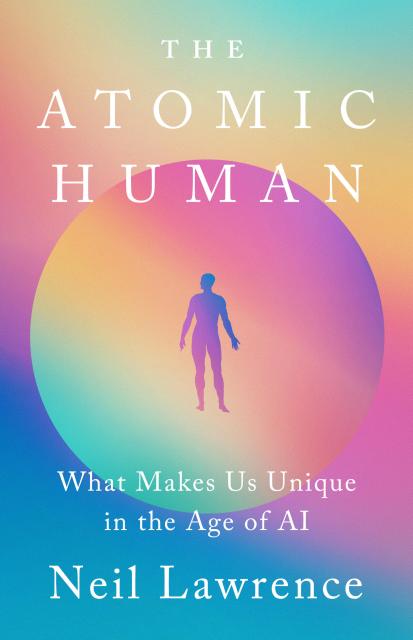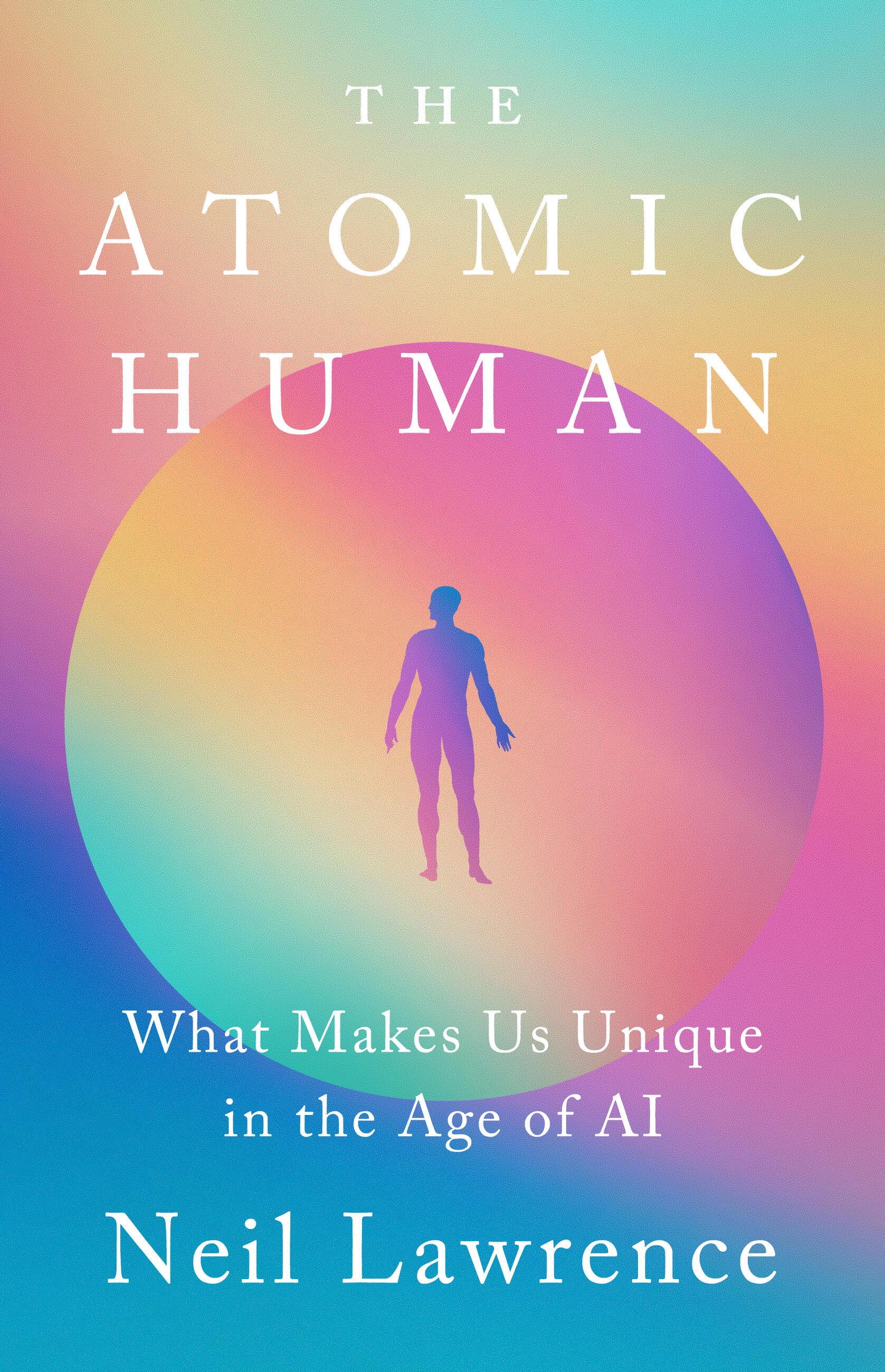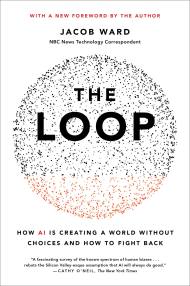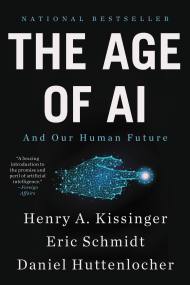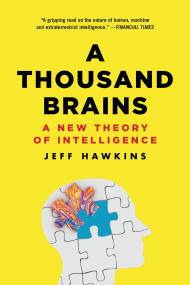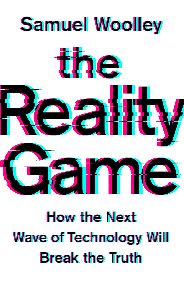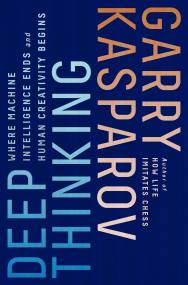By clicking “Accept,” you agree to the use of cookies and similar technologies on your device as set forth in our Cookie Policy and our Privacy Policy. Please note that certain cookies are essential for this website to function properly and do not require user consent to be deployed.
The Atomic Human
What Makes Us Unique in the Age of AI
Contributors
Formats and Prices
Price
$19.99Price
$25.99 CADFormat
Format:
- ebook $19.99 $25.99 CAD
- Hardcover $32.50 $42.00 CAD
- Audiobook Download (Unabridged) $31.99
This item is a preorder. Your payment method will be charged immediately, and the product is expected to ship on or around September 3, 2024. This date is subject to change due to shipping delays beyond our control.
Also available from:
From a renowned computer scientist, this book seeks the distinctive human quality that will prevail against artificial intelligence.
If artificial intelligence takes over decision-making what, then, is unique and irreplaceable about human intelligence? The Atomic Human is a journey of discovery to the core of what it is to be human, in search of the qualities that cannot be replaced by the machine. Neil Lawrence brings a timely, fresh perspective to this new era, recounting his personal journey to understand the riddle of intelligence.
By contrasting our own intelligence with the capabilities of machine intelligence through history, The Atomic Human reveals the technical origins, capabilities, and limitations of AI systems, and how they should be wielded–not just by the experts, but ordinary people.
-
“Neil D. Lawrence’s The Atomic Human is a brilliant technological and philosophical tour de force by one of the world’s foremost authorities on AI and machine learning. Anyone interested in the great promise and potential dangers of AI and machine learning would do well to read this book. The Atomic Human is at once fascinating, entertaining, and a deeply serious study on the most consequential emerging technologies humans have ever developed. Lawrence has plenty of computer science laced through the book, but he makes it understandable to the non-specialist by historical examples and analogy. It is also a book of ethics and philosophy that argues we must always ensure machines and AI are viewed and used as tools to assist humans, and we must never concede control of fundamental decisions of great consequence. A great book by an obviously brilliant author.”General Mark A. Milley, former chairman, US Joint Chiefs of Staff
-
“The Atomic Human is a brilliantly panoramic celebration of the vast expanses of human cognition as well as the ingenious, flawed, and often bizarre attempts to replicate it artificially. Refusing easy answers, Lawrence cuts a huge swath across the history of computation with passion, erudition, skepticism, and hope. Cognition, he shows us repeatedly, is not an abstract formula but an impossibly eclectic phenomenon that manifests differently in myriad contexts. From amoebae to the brain to information theory, from Isaac Newton to Alan Turing to ChatGPT, Lawrence shows our approximations of the mind leave out as much as they leave in. He reminds us of the plumbed and unplumbed depths of what is really at stake and the unexpected consequences that will accompany the increased integration of society and technology, the uncontrolled behemoth he calls System Zero. What he demonstrates is more relevant and more urgent than most supposed metrics of AI’s capabilities today.”David Auerbach, author of Meganets and Bitwise
-
“Lawrence is one of the world’s foremost authorities on AI and one of the few who has deployed AI in large-scale industrial systems. He is also a rare technical leader who understands AI as part of a long evolution of human beings interacting with other intelligences in a cognitive landscape. In this thoughtful and engaging book—ranging from James Watt’s steam engines to World War II gunners and the Apollo lunar landings—Lawrence shows what’s novel and what’s human about AI. A must-read for anyone seeking to understand AI’s place in our world and how to harness it for human flourishing.”David A. Mindell, Dibner Professor of the History of Engineering and Manufacturing, MIT
-
“In the wide-ranging intellectual sweep of The Atomic Human, Lawrence invites the public to understand and contrast human and machine intelligence and what AI means for society, effortlessly bridging C. P. Snow’s ‘two cultures’ with lucid, accessible explanations of mathematics and computer science and resonant human and cultural stories from Democritus to Ernest Hemingway.”Dr. Jean Innes, CEO, Alan Turing Institute
-
“This is an utterly absorbing account of humans, computers, and how much they differ. It explains why AI cannot substitute for human intelligence even as machine intelligence poses enormous challenges for how information is used and societies are organized.”Diane Coyle, Bennett Professor of Public Policy, University of Cambridge
-
“This is a book for anyone and everyone interested in what makes humans different from machines by one of the world’s experts in AI research. Understanding our differences more may help us live in harmony alongside very intelligent machines, so that we can worry less about existential threats and more about how we work with intelligent machines to make the world a better place.”Dame Wendy Hall, Regius Professor of Computer Science, University of Southampton
-
“The Atomic Human concludes that whatever AI becomes, and whether or not it ultimately poses a threat to our species, it will never replicate or penetrate the essence of what it means to be human.”Matthew Syed, Sunday Times
- On Sale
- Sep 3, 2024
- Page Count
- 448 pages
- Publisher
- PublicAffairs
- ISBN-13
- 9781541705142
Newsletter Signup
By clicking ‘Sign Up,’ I acknowledge that I have read and agree to Hachette Book Group’s Privacy Policy and Terms of Use
